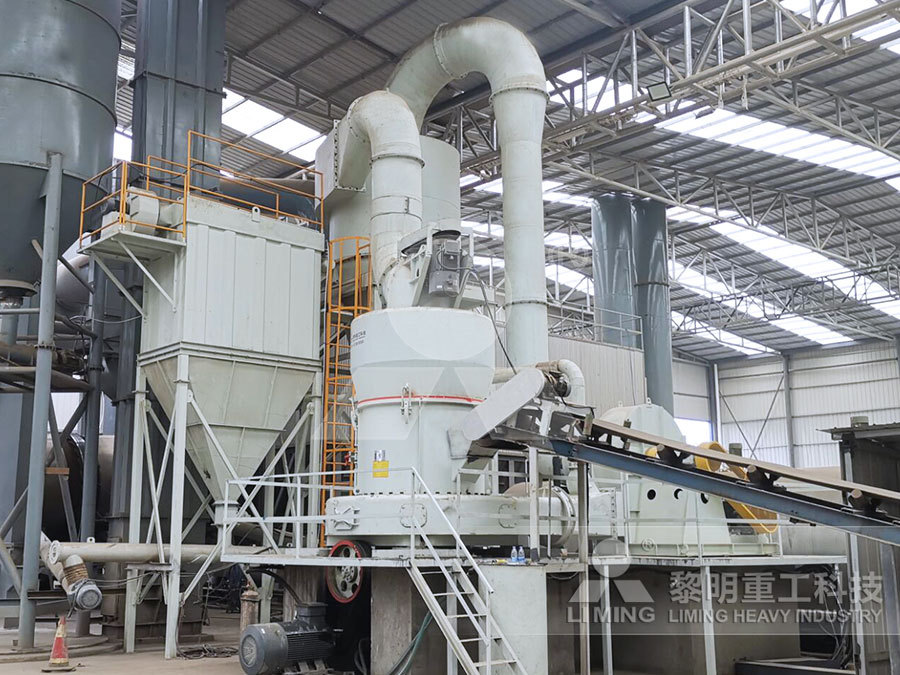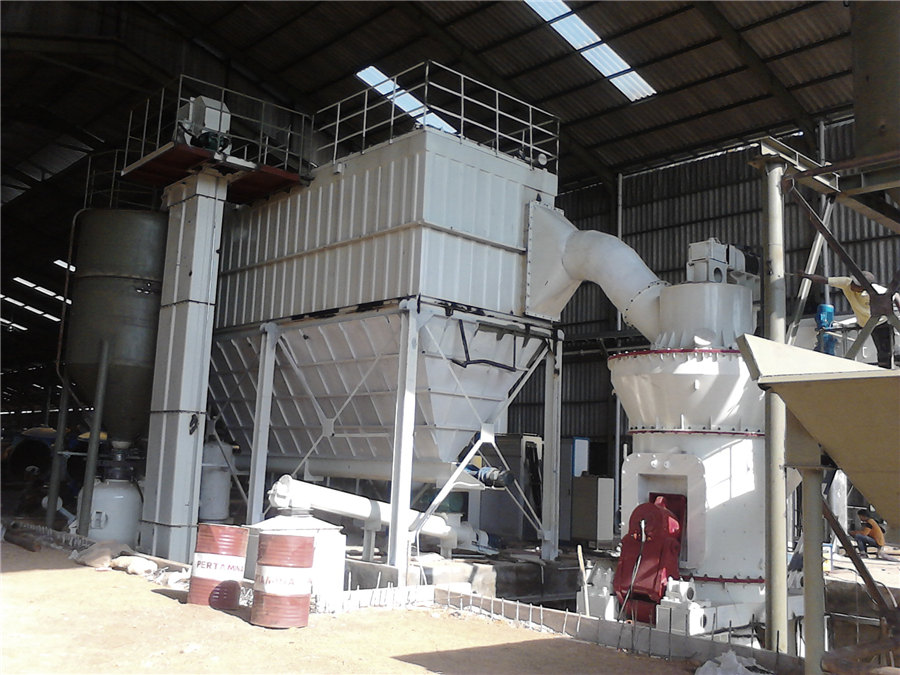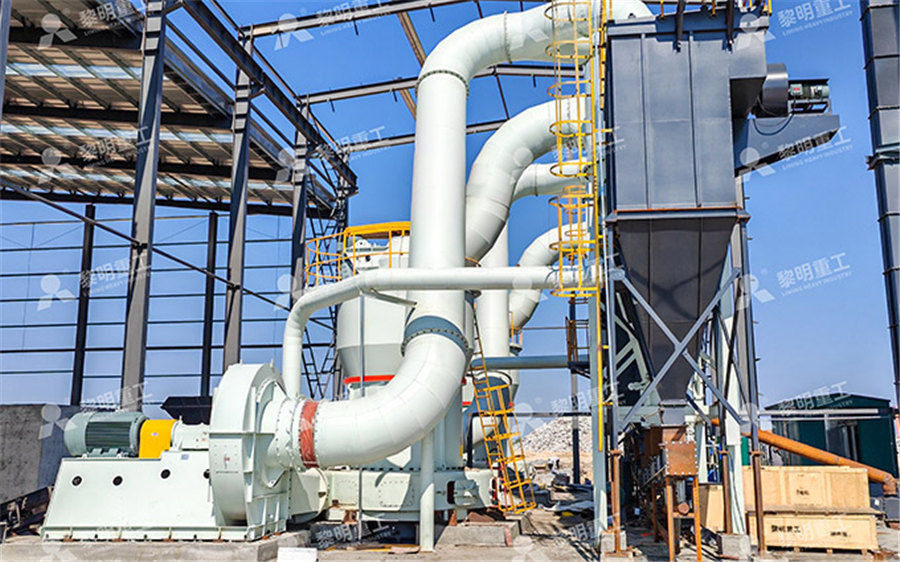
National policy on limestone crusher smelting waste slag

Steel slag in China: Treatment, recycling, and management
2018年8月1日 Encourage steel slag to be used for sinter, fertilizer, or cement; built the industry chain for a circular economy of smeltingslagbuilding materials Pollution Prevention in the Steel Industry Technology Policy: Effective May 24, 2013: Encourage the steel slag after treatment 2021年5月1日 Hence, in response of its potential economic performances and environmental benefits, copper slag needs to be subjected to further metallurgical recycling and cleaning Comprehensive review on metallurgical recycling and cleaning of 2019年12月9日 In this paper, the slag granulation and heat recovery options are reviewed and given a critical evaluation, aiming to provide a basis for future directions in slag handling The Granulation and Heat Recovery from Metallurgical Slags2023年11月20日 Considering global steel production of 1878 million tonnes in 2020, the associated slag byproducts possess a significant resource of major components like FeO, CaO, SiO 2, Al 2 O 3, etc Selecting a recycling A Review on Environmental Concerns and
.jpg)
(PDF) Recycling and environmental issues of
2004年1月1日 Using slag as a recycling or renewable resource rather than a waste product has environmental and economic benefits Recycled smelter slags can be used in both in situ and ex situ treatment 2020年9月24日 In this paper, the common ways of resource utilization of steel slag in construction, agriculture, industry, and catalysis are reviewed Steel slag as a solid waste with Sustainable Utilization of Steel Slag from Traditional Industry and 2023年3月6日 The results from the different studies suggested that the use of recycled smelter slag waste products as a reactive medium for site remediation, as well as water and wastewater treatment, would be sustainable and Recycled Smelter Slags for In Situ and Ex Situ Water 2015年6月1日 The results impact how slag waste is disposed, how slag waste piles are treated, and if and how slag is used as a resource for construction or environmental applications In Characteristics and environmental aspects of slag: A review
.jpg)
Sustainable Approaches for LD Slag Waste
2016年5月16日 Reduce, reuse, and recycle are important techniques for waste management These become significant for improving environmental and economic condition of industries Integrated steel industries are generating 2020年6月3日 In this study, Zn/Cubearing smelting slag was recycled via an integrated acid dissolution and hematite precipitation method The slag was dissolved in nitric acid to generate Highpurity recycling of hematite and Zn/Cu mixture from waste 2018年12月1日 Environmental issues have increased the importance of recycling and management of the byproducts of smelting and mining wastes The Center for Sustainable Resource Processing (CSRP) supported by the Australian government evaluated various waste streams produced by the mineral industry from technical, economic, and environmental aspectsApplicability of gold tailings, waste limestone, red mud, and 2024年11月1日 The utilization rate of SS exceeds that of LFS due to its lower basicity, although it remains considerably lower than the rates observed in developed countries in Europe and the United States, standing at approximately 30 % [4]Currently, the internal recycling of SS predominantly takes place within the smelting production process, serving purposes such as Recent research progress on recycling metallurgical waste slag
.jpg)
(PDF) Nickel Laterite Smelting Processes and Some
2019年9月3日 slag from an operational point of view, and indicated that high slag temperatures have not been a major problem because of the installation of sidewall cooling systems in ferronickel smelters [ 年7月1日 The establishment of vegetation cover is an important strategy to reduce wind and water erosion at metal smelting waste slag sites However, the mobility of heavy metals in waste slagvegetation Effect of different direct revegetation strategies on the mobility of 2024年2月7日 Reduction The reduction process for copper slag is typically followed by magnetic separation []Depending on the temperature and intensity of reduction, it can be classified as direct reduction, deep reduction, and smelting reduction []Commonly used reducing agents include coke, biomass carbon, and natural gas [31, 32]The reduction process converts Resource Utilization of Copper Slag with a Focus on Springer2024年1月12日 LSS is a byproduct resulting from the smelting process of metallic lead, which involves hightemperature melt quenching in water, similar to other materials such as fly ash [9], steel slag [10], and GGBFS [11]The material under consideration comprises a certain quantity of amorphous calciumaluminumsilicate glassy phase, which exhibits cementitious behavior Innovation and performance of lead smelting slagbased multi

Limestone Mills Limestone Crushers Pulverizers Williams Crusher
Williams Patent Crusher is committed to designing and manufacturing the most durable and efficient limestone crusher machines on the market We’ve held that commitment for over 150 years Additionally, since the mid1980s, we’ve developed extensive experience in Circulating Fluidized Bed (CFB) technology and our limestone mills have proven themselves as an 2023年8月18日 The waste slag of soil and rock mixture produced by tunnel excavation is gradually being applied as a filler in roadbeds and retaining structures, forming a typical interaction problem between waste slag and concrete interface A largescale direct shear apparatus carried out a series of tests on the interface between limestone waste slag and Study on macroscopic and microscopic shear mechanical2022年2月26日 Blast furnace slag is a solid waste formed by gangue in ore, ash in fuel and nonvolatile components in solvent (generally limestone) in the process of blast furnace ironmakingIt mainly contains oxides of calcium, silicon, aluminum, magnesium and iron and a small amount of sulfideWhat is Blast Furnace Slag and How to Process It Eastman Rock Crusher2023年4月1日 Gypsum sludge refers to a hazardous solid waste produced by the nonferrous smelting industry, and its disposal and utilization are environmentally challenging To investigate the feasibility of replacing limestone with gypsum sludge for smelting slagging, the effect of gypsum sludge and smelting conditions on high lead slag reduction smelting was studied Utilization and detoxification of gypsum sludge by replacing limestone

Utilization and detoxification of gypsum sludge by replacing limestone
reductions smelting of high lead slag Herein, toxicity leaching experiment of sulfuric acid and nitric acid method was used to evaluate the safety of the cosmelting slag to provide a basis for the cosmelting of high lead slag with gypsum sludge 2 Experimental 21 Materials and reagents In this study, high lead slag as the experimental2023年3月3日 Copper slag, a waste solid produced in the copper smelting process, is a highquality secondary resource with huge output The recycling and utilization of copper slag is of great interest because it avoids the loss of valuable metals and the threat of harmful metals, and saves a lot of natural resources and energy This paper firstly reviews the main methods for Review on Comprehensive Recovery Valuable Metals and 2020年7月31日 The amount of copper flash smelting slag has increased during the recent years along with an increasing slagtometal ratio During slag tapping, some copper sulfide is mechanically entrained As a result, it is necessary to Effect of Cooling Rate and Slag Modification on the 2022年1月19日 Therefore, this paper reviews the recent research progress on the use of metallurgical waste residues (including blast furnace slag, steel slag, red mud, and copper slag) as SCMs to partially replace cement, as well as the use of alkaliactivated metallurgical waste residues as cementitious materials to completely replace cement for the production of CLSMsResearch Progress on Controlled LowStrength Materials MDPI

Life cycle assessment of melting reduction treatment for iron and
2022年11月1日 China has the largest output of steel and iron in the world (Zhang et al, 2022)In 2021, China's average annual pig iron output arrived at about 869 million ton (Stewart et al, 2021) and crude steel arrived at about 103 billion tons (Zhao et al, 2022)Meanwhile, the output of steel solid waste keeps at a high level and generally the production of one ton steel will generate 2020年10月16日 In view of the nonrenewable reductant resources and carbon neutralization in the process of copper slag cleaning in an electric furnace, this study proposed to use waste cooking oil as reductant to replace fossil energy Combined with the phase equilibrium theory and experimental results, the harm of excessive magnetite in the copper smelting slag to the Copper Smelting Slag Cleaning in an Electric Furnace by Using Waste 2021年4月30日 As seen from the test results shown in Table 35, the fluorine in magnesium slag that is generated via the Pidgeon process seriously exceeds the standard limitThus, the slag cannot be landfilled directly because it will cause serious consequences Similarly, with reference to HJ/T2992007 “Solid wasteExtraction procedure for Leaching ToxicitySulfuric acid and Magnesium Slag Generated by Reduction Smelting Using Pidgeon Process2018年8月1日 As of 2016, more than 300 million tons of waste slag remained Additionally 1984 Steel slag utilization in asphalt mixes National Slag Association MF 1861 Pleasant P, Young, J, Ma, GJ, Young, C, 2016 Characterization and recovery of valuables from waste copper smelting slag Advances in molten slags, fluxes Steel slag in China: Treatment, recycling, and management
.jpg)
Comprehensive Utilization Technology of Steel Slag
2019年5月23日 Steel slag is the waste generated in the steelmaking process and includes ferric oxide and the impurities of some infusible matters It is the byproduct when slagforming constituents (such as fluorite, lime, and deoxidant) are added for deoxidization, desulfurization, and dephosphorization in steelmaking2019年12月9日 Metallurgical slags are produced at a massive rate of over 750 Mt/year, and carry a thermal energy equivalent to 40 Mt/year of coal The potential mineral and thermal energy values of slags are in the order of $22 b and $3–6 b per year Such attractive figures, together with tightening legislation on disposal of slag and the carbon footprint associated with the loss Granulation and Heat Recovery from Metallurgical Slags2021年4月1日 Impact of waste slag reuse on the main inputs were waste LABs (8851%), landfilling (514%), and scrap iron (340%) For scenario C, the main inputs were limestone (5294%), waste LABs (3712% First, companies must add appropriate slagforming agents during smelting to ensure that the waste slag forms a cooled Impact of waste slag reuse on the sustainability of the secondary because when it ends up in the slag it can lead to failure of the TCLP Barium produces a deep green flame over the slag and matte, a stony appearance, and a large amount of matte Too much alkaline earths or too much zinc can “freeze” a blast furnace [2] A low silica highlime slag is a dangerous sign that the furnace is about to freezeA REVIEW OF SLAG CHEMISTRY IN LEAD RECYCLING
.jpg)
LadleFurnaceSlag Reprocessing at Evraz Nizhnii Tagil Iron and
2020年9月24日 Ladle furnaces at Evraz Nizhnii Tagil Iron and Steel Works OJSC produce over 90,000 metric tons of slag per year As this slag cools, it turns into a finegrained powder; if the powder cannot be sold, it is temporarily stored until it can be disposed of [1] We have considered producing easily used flux sinter from the slag generated during ladle processing of steel 2023年11月20日 Figure 4 shows the total waste generation from the steel manufacturing process and how much industry and academic research got attention in various applications Their chemical composition, along with BOF, EAF, and LF slag, is shown in Table 2It is apparent that the BOF and EAF slags have almost identical chemical components, but a higher amount A Review on Environmental Concerns and Technological Springer2021年5月1日 The smelting process can be divided into three stages, namely decomposition of highvalence sulphide, oxidation of sulphide, and matte smelting and slagging reaction (Fig 1)The efficiency of matte smelting and matteslag separation, as well as the extent of copper losses to slag are mainly affected by the oxidation/reduction potential, matte grade, smelting Comprehensive review on metallurgical recycling and cleaning of copper slag2019年5月29日 The desulfurization performance of magnesium slag has been improved by the modified method of quenching hydration, but it still cannot meet the industrial requirements Based on the research of additives for calciumbased desulfurizer, NaCl, CaCl2, Na2SO4, CaSO4, Na2CO3, K2CO3, acetic acid and adipic acid are used for modification of quenching Study on magnesium slag desulfurizer modified by additives

Using SteelSmelting Slag as a Raw Material Component in the
Using SteelSmelting Slag as a Raw Material Component in the Production of Asphalt Concrete Dmitry Kuznetsov1*, Marina Vysotskaya1, and Albert Burgonutdinov2 1Belgorod State Technological University VG Shukhov, Kostukova str, 46, , Belgorod, Russia 2 Perm National Research Polytechnic University, Komsomolsky Prospect, 29, , Perm, Russia2022年8月1日 The LZS slag was generated after the separation of Pb and Zn from during Leadzinc ore smelting, which is some large grains with distinct water chestnuts, as shown in Fig S2a It estimates the average diameter of 154 μm and its surface area is 0713 m 2 /g ( Fig S2c )Removal of arsenic in acidic wastewater using Lead–Zinc smelting slag 2020年6月3日 Introduction Smelting slag is a typical hazardous waste generated in the smelting and metallurgy industry 1, 2Slag contains high concentrations of heavy metals, such as Cu, Zn, Cr and Ni, which are harmful if released into the environment 3In China, smelting slag is disposed of as an environmental priority pollutant, wherein the slag is generally stabilized with cement Highpurity recycling of hematite and Zn/Cu mixture from waste smelting 2015年6月1日 Slag is a waste product from the pyrometallurgical processing of various ores Based on over 150 published studies, this paper provides an overview of mineralogical and geochemical characteristics of different types of slag and their environmental consequences, particularly from the release of potentially toxic elements to waterCharacteristics and environmental aspects of slag: A review
.jpg)
Recycle Metal From Slag: The Recycling Process
2021年11月11日 For example, copper smelting waste slag contains Cu 0204%, and ferrovanadium smelting waste slag contains V2O50203% Reasonable selection of the composition of the slag according to the physical 2017年2月8日 Materials The smelting slag used in this study was obtained from a copper plant in China Mineralogical analysis, performed using scanning electron microscope (SEM) and energy dispersive Xray spectroscope (EDS), polarizing microscope and Xray diffraction (XRD), indicated that fayalite (Fe 2 SiO 4) and magnetite (Fe 3 O 4) phases were major components The Recovery of Copper from Smelting Slag by Flotation Process2024年7月5日 Using smelting technology to recover metals from slag is economically justified if the value of recovered metals exceeds a certain threshold per ton of slag treated (Mitrašinović Wolf, 2015) Various studies have shown that recovering metals from copper slag is economically feasible, with high iron recovery percentages and potential economic benefitsCopper Slag as a Source of Iron: An Overview SpringerLink2014年5月3日 The utilization of solid waste is the challenge for the civil and environmental engineers to utilize the waste from different industry to excel the sustainable development, and in the same time, it is matching with the cost concern of the present materials Copper slag is a byproduct obtained during smelting and refining of copper The waste copper slag can be used Use of waste copper slag, a sustainable material

Extraction and separation of copper and iron from copper smelting slag
2022年9月25日 Iron in CSS mainly exists in the form of complex iron oxides such as iron olivine rather than magnetite or hematite, which is difficult to be recovered efficiently by traditional beneficiation methods (Li et al, 2021)In order to separate iron from CSS, it is necessary to convert the complex iron oxide into metal iron or ferric oxide, and then recover it through 2022年1月1日 Zinc smelting waste slag was collected from a zinc smelting waste slag site in Weining County, Guizhou Province, China (104°44′0779″E, 26°41′2189″N) The collected waste slag samples were airdried indoors and then passed through a 2 mm sieveEffect of different direct revegetation strategies on the mobility of Industrial solid waste (ISW) is a collection of waste produced in the process of industrial manufacturing [1], [2]In recent decades, the global production of ISW has continued to increase, in China, for example, by 2020 to reach a staggering 368 billion ton [3], [4]ISW generally has the characteristics of large storage, continuous environmental pollution, rich in valuable metals, Practical experience to theoretical innovation: A model for 2017年12月14日 The geopolymer samples were prepared with smelting waste slag of nonferrous metal as the raw material and water glass as the activator The effect of modulus of water glass and water binder ratio on the compressive strength was studied The results show that the strength of the geopolymer activated by water glass with modulus of 11 and water binder ratio Preparation and microstructural analysis of smelting waste
.jpg)
The role of slag modifiers on the selective recovery of cobalt and
2002年11月1日 Slag cleaning is important from both an economical and environmental perspective Dump slags from copper smelting prove to be a valuable source of base metals, but the abundance of iron in the slag leads to significant amounts of iron reporting to the alloy phase during carbothermic reduction, which poses a significant cost to remove in subsequent 2022年1月1日 The establishment of vegetation cover is an important strategy to reduce wind and water erosion at metal smelting waste slag sites However, the mobility of heavy metals in waste slagvegetationleachate systems after the application of revegetation strategies is still unclear Large microcosm experiments were conducted for revegetation of waste slag for 98 d Effect of different direct revegetation strategies on the mobility













